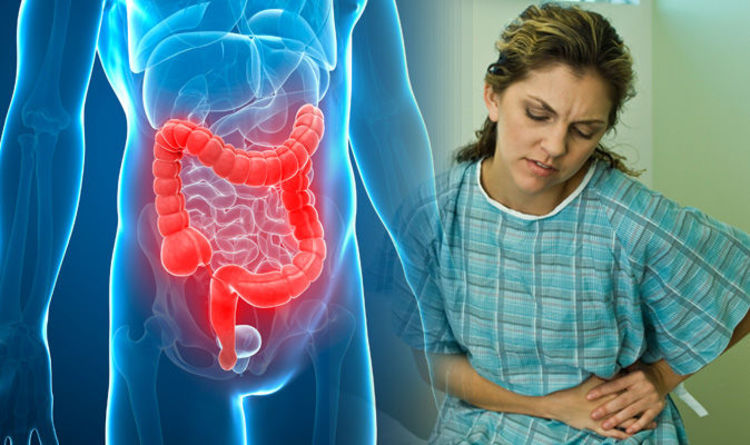Fuse Infusion Offers Biologic Infusion Therapy for Crohn’s Disease
In the United States, as per the research, approximately half a million individuals have Crohn’s disease. It is a chronic, long-term disease and causes inflammation of the digestive tract. Those individuals who face Crohn’s disease will experience severe pain and some other symptoms,
Well, at Fuse Infusion, we can help you in overcoming this chronic, and auto-immune disease through specialized medicines called biologics. We offer a safe environment for our patients to complete their treatment safely at the biological infusion center.
Crohn’s disease signs and symptoms might include pain, discomfort, and intestinal ulcers. Crohn’s disease can appear at any age, despite the fact that it often first manifests in childhood or early adulthood. It’s crucial to have a network of allies who comprehend what it’s like to live with Crohn’s disease.
Crohn’s Disease
IBD, often known as inflammatory bowel disease, is a group of illnesses that includes Crohn’s disease. Another kind of IBD is ulcerative colitis.
An autoimmune-mediated inflammatory disorder, Crohn’s disease. This means that the body’s own cells are wrongly attacked by the immune system, which believes they are dangerous when they are not.
Any area of the gastrointestinal (GI) system, from the mouth to the anus, can be impacted by Crohn’s disease. The digestive system is the primary site of symptoms, but the skin, joints, bones, eyes, kidneys, and liver can also be impacted.
Stages of Crohn’s Disease
Crohn’s disease is chronic, which means it is a persistent ailment that frequently lasts a lifetime. However, this is not always the case. It can also be progressive, meaning that a person’s symptoms might get worse with time.
Due to the GI tract’s susceptibility to long-term inflammation, Crohn’s disease may deteriorate over time. To stop or lessen inflammation, doctors can manage a patient’s illness. To assist in halting progression and stop more harm, early Crohn’s diagnosis and therapy are essential.
Most of the time, Crohn’s disease has no predictable pattern. The illness typically does not advance through any discernible stages, and its future course is not necessarily predictable.
A person with Crohn’s disease typically has flare-ups and remissions. A flare-up occurs when a person’s symptoms suddenly get worse or worsen. When this happens, the patient is said to be in remission.
A doctor will support a patient in keeping track of their symptoms and, as necessary, provide guidance on management and therapy.
Crohn’s Disease – Symptoms
The symptoms of Crohn’s disease vary from one individual to another and also depend on the gut part which it affects. They often include:
- Pain:
The pain intensity varies from person to person and is influenced by the location of the intestinal inflammation. People frequently complain of lower right abdominal aches.
- Gut ulcers:
These are raw, perhaps bleeding regions. A person can discover blood in their stools if this occurs.
- Mouth ulcers:
These are typical Crohn’s disease symptoms.
- Diarrhea:
There may be blood, mucus, or pus in addition to mild to severe diarrhea. Additionally, a person may experience the urge to urinate yet find that nothing comes out.
- Fatigue:
Crohn’s patients frequently experience extreme fatigue and may get a fever.
- Altered appetite:
A person’s appetite may occasionally decline.
- Weight loss:
A loss of appetite may cause this.
- Anemia:
Blood loss can result in anemia.
- Anal fissures and rectal bleeding:
When the skin of the anus cracks, it causes pain and bleeding.
In addition to these symptoms, a person with Crohn’s disease may also experience::
- Inflammation and skin rash
- Uveitis
- Arthritis
- Bile duct or liver inflammation
- Delayed sexual development or growth in children
Causes of Crohn’s Disease
The exact cause of Crohn’s disease is unknown. According to experts, it can be the result of an immune system reaction that is aberrant. They are unsure, though, if the sickness is a direct cause of this reaction or if it is a symptom of it.
Inflammation may be brought on by a number of factors, including:
- The immune system
- Person’s genetics
- External variables
A virus or bacterium might also contribute. For instance, research points to a connection between Escherichia coli and Crohn’s disease. Another risk factor is smoking.
Treatment of Crohn’s Disease with Biological Infusion Therapy
Crohn’s disease can be treated through medication. But, we have come up with a very new and advanced treatment way, i.e., biologic infusion therapy.
Biologics are a class of medications that scientists have created from living things. By focusing on the proteins that cause inflammation, biologics lower the body’s immunological response. They seem to benefit those who have Crohn’s disease.
Here are a few instances:
- Integrin receptor antagonists, such as vedolizumab (Entyvio)
- Anti-tumor necrosis factors medications, such as infliximab (Remicade), adalimumab (Humira), and certolizumab pegol (Cimzia
- Anti-interleukin-12 and interleukin-23 therapy, which may include ustekinumab (Stelara)
Following are some of the biologics used in Crohn’s disease treatment:
- Adalimumab (Humira)
- Infliximab (Remicade)
- Certolizumab pegol (Cimzia)
Vomiting, nausea, and decreased infection resistance are examples of side effects that can come with biologic therapies.
According to some studies, using biologics can cut the chance of needing abdominal surgery in half within ten years. This percentage was 40–55%, according to studies before the development of biologics. Additionally, biologics seem to lessen the possibility of corticosteroid side effects.
Biologic medications come in a variety of forms, and each person responds to them differently. If the first option turns out to be useless, a doctor will advise an alternate or medicine combination.
We always recommend treatment through biologics, as you will recover in two to six weeks. Sometimes, healthcare professionals can also recommend them in combination with other biologics.
We infused biologics into the body of an individual through biologic infusion therapy treatment. We carefully monitor our patients so that if there are any allergic signs, we can treat them immediately.
Your doctor will provide you with a rheumatoid arthritis medication dosage prescription. In case you see some signs of allergy after receiving the biologics, consult us immediately!
Contact Fuse Infusion for Crohn’s Disease Treatment
If your doctor has recommended biologic therapy treatment for Crohn’s disease, we at Fuse Infusion offer you the best treatment services. We treat Crohn’s disease through medications, which are specialized biologics, and help our patients in overcoming this chronic disease.
Each Fuse Infusion patient receives direct care and treatment from our licensed professionals throughout biological infusion therapy, providing thorough medical management.
From start to end, each patient receives individualized care. When required, on-call medical professionals are accessible.
At Fuse Infusion, we believe in offering premium-quality services to our patients. So, contact us to receive a biologic infusion today!

